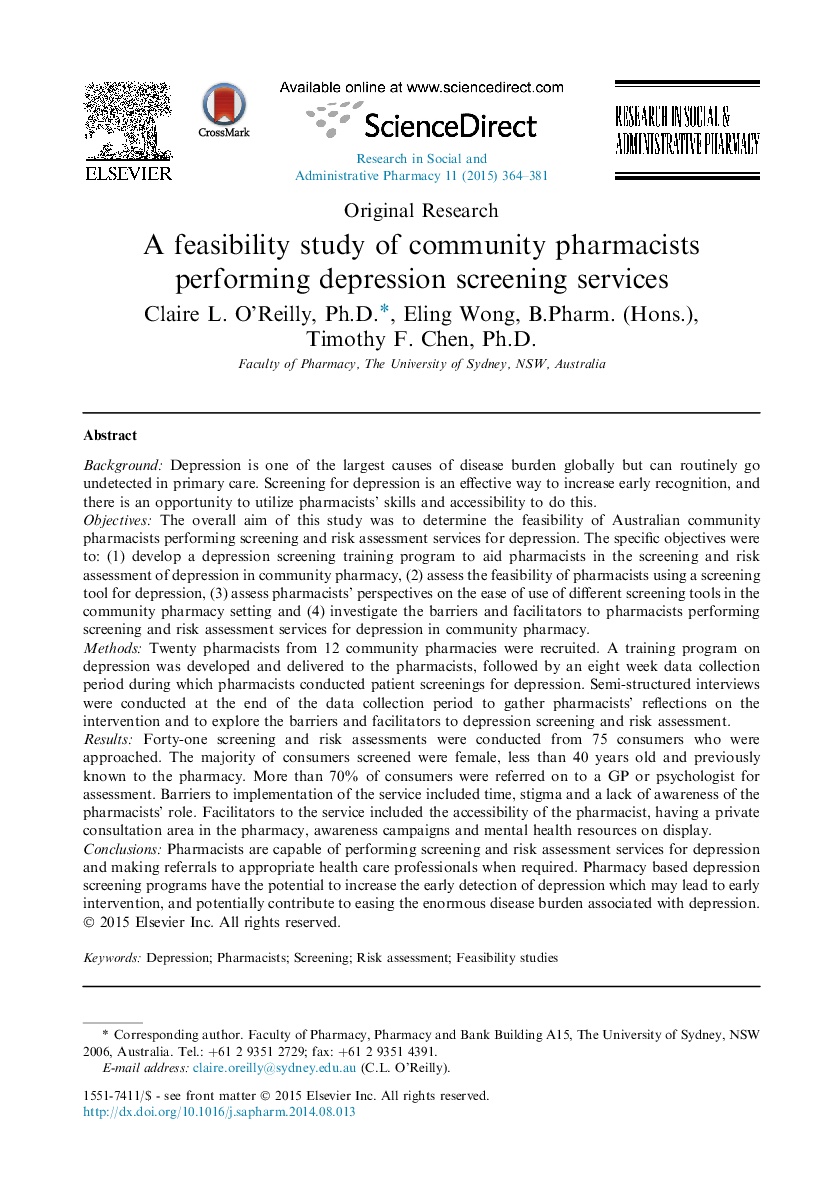| Article ID | Journal | Published Year | Pages | File Type |
|---|---|---|---|---|
| 2508318 | Research in Social and Administrative Pharmacy | 2015 | 18 Pages |
BackgroundDepression is one of the largest causes of disease burden globally but can routinely go undetected in primary care. Screening for depression is an effective way to increase early recognition, and there is an opportunity to utilize pharmacists' skills and accessibility to do this.ObjectivesThe overall aim of this study was to determine the feasibility of Australian community pharmacists performing screening and risk assessment services for depression. The specific objectives were to: (1) develop a depression screening training program to aid pharmacists in the screening and risk assessment of depression in community pharmacy, (2) assess the feasibility of pharmacists using a screening tool for depression, (3) assess pharmacists' perspectives on the ease of use of different screening tools in the community pharmacy setting and (4) investigate the barriers and facilitators to pharmacists performing screening and risk assessment services for depression in community pharmacy.MethodsTwenty pharmacists from 12 community pharmacies were recruited. A training program on depression was developed and delivered to the pharmacists, followed by an eight week data collection period during which pharmacists conducted patient screenings for depression. Semi-structured interviews were conducted at the end of the data collection period to gather pharmacists' reflections on the intervention and to explore the barriers and facilitators to depression screening and risk assessment.ResultsForty-one screening and risk assessments were conducted from 75 consumers who were approached. The majority of consumers screened were female, less than 40 years old and previously known to the pharmacy. More than 70% of consumers were referred on to a GP or psychologist for assessment. Barriers to implementation of the service included time, stigma and a lack of awareness of the pharmacists' role. Facilitators to the service included the accessibility of the pharmacist, having a private consultation area in the pharmacy, awareness campaigns and mental health resources on display.ConclusionsPharmacists are capable of performing screening and risk assessment services for depression and making referrals to appropriate health care professionals when required. Pharmacy based depression screening programs have the potential to increase the early detection of depression which may lead to early intervention, and potentially contribute to easing the enormous disease burden associated with depression.
